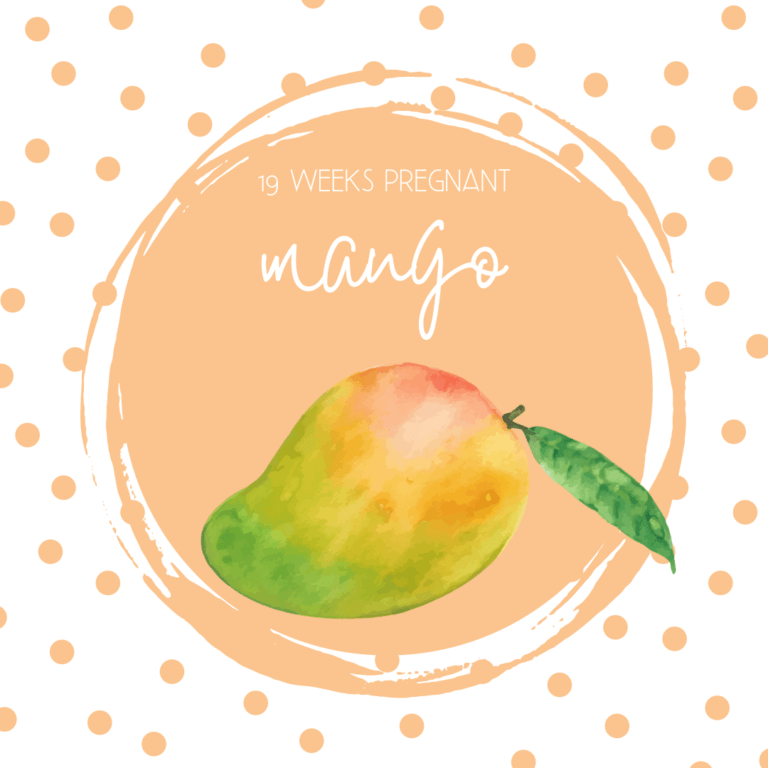Entering the nineteenth week of pregnancy is like being at an exciting crossroads. Your belly is growing, and you may even start to feel those first magical fluttering’s of your baby’s movements. However, alongside these joyful moments, there’s a myriad of changes occurring within you. This post will take a deep dive into the lesser-known symptoms you may experience during week 19 of pregnancy, ensuring you’re informed and prepared for this crucial stage in your pregnancy. Understanding Week 19 Pregnancy will help you navigate these changes effectively and stay ahead in your journey to parenthood.
Welcome to the ‘Splendid’ Second Trimester
Week 19 signals the official start of your second trimester. Often dubbed the “honeymoon phase of pregnancy,” the second trimester is typically a time of increased energy and a decrease in the previous symptoms like nausea and fatigue. However, each pregnancy is unique, and while some may breeze through this trimester, others may continue to face challenges.
Renewed Energy or Unanticipated Fatigue?
Expect fluctuations in your energy levels. Some expectant mothers thrive with newfound vigor. However, if you experience unexplained fatigue, remember it’s completely normal. Your body is working hard to support your growing baby, so make time to rest and nap when needed.
That Pregnancy ‘Glow’
You may find your skin is looking particularly radiant. The increased blood flow gives a naturally flushed look, often referred to as the “glow.” Hormonal changes and a good dose of increased self-confidence also play major parts.
The Wonders of Physical Changes
Your body is changing rapidly, adapting to create a perfect home for your little one. These modifications often bring new sensations, some welcome and others less so.
The Expanding ‘Bump’
By week 19, you may notice a significant bump. Many women find it a beautiful affirmation of their pregnancy. However, with it comes physical strain. Backaches or hip pains may become more pronounced. Yoga or prenatal exercises specifically targeting these areas can provide relief.
The Return (or First Appearance) of Sex Drive
With decreasing first-trimester symptoms, many women feel a resurgence of their sex drive. Hormonal changes can also make sex more comfortable and pleasurable for some. If you have concerns, don’t hesitate to discuss these with your healthcare provider.
Focusing on Nutrition and Exercise
Nourishing your body and staying active are crucial components of a healthy pregnancy. It’s a perfect time to revisit your diet and exercise routines to ensure you and your baby are getting the best care possible.
Finding Balance in Your Diet
Your baby is growing rapidly, and you may find that you’re hungrier than before. Make sure you’re eating nutritious meals frequently. Foods rich in protein, iron, and calcium will support the development of your baby’s bones and muscles.
Crafting an Exercise Regimen
Maintaining an exercise regimen, or starting one if you haven’t already, is beneficial. Moderate exercise can help control weight gain, reduce swelling, and can even ease pregnancy discomforts. If you’re new to working out, consider activities like walking or swimming, and always consult your doctor before starting a new exercise routine.
Emotional Turbulence
Expect an array of emotions as your pregnancy progresses. These feelings are entirely natural and part of the process of becoming a mother.
Preparing for the New Role
The awareness of impending motherhood can be both joyful and overwhelming. It’s normal to have moments of anxiety or fear. This is an excellent time for reflection and considering what kind of support and care you will need.
Your Partnership in Pregnancy
Your relationship with your partner can shift during pregnancy. Some couples grow closer in anticipation of parenthood, while others may find the experience stressful. Communication is key. Share your feelings and work together to prepare for the life-changing event ahead.
Baby Movements and Milestones
Feeling your baby move for the first time is a moment you’ll never forget. By week 19, some mothers start to feel these delicate flutters.
Understanding Quickening
Quickening is the term used to describe the first fetal movements felt by the mother. It’s often described as feeling like gas bubbles or the fluttering of butterflies. These movements are a reassuring sign of your baby’s health and are a beautiful connection between you and your little one.
Keeping Track of Movements
Once you’ve identified baby movements, your healthcare provider might ask you to keep track. It’s not a formal requirement, but noting when your baby is most active can provide valuable information about their development and health.
Final Thoughts
Week 19 is just the beginning of many changes and wonderful experiences that pregnancy brings. From newfound energy to the anticipation of your baby’s first movements, every day is a step closer to meeting your little one. Take care of yourself, stay informed, and treasure the moments that define this miraculous journey to motherhood.
After exploring Week 19, catch up on Week 18 to see how it all began, or jump ahead to Week 20 to stay ahead of the curve.
Join Our Community!
Are you looking for support, advice, or just a friendly chat about pregnancy and parenting? Join our community on Facebook! Connect with other parents, share your experiences, and get answers to all your questions.
Additional Resources
For more information on pregnancy, childbirth, and postpartum care, check out the following resources:
- American Pregnancy Association: https://americanpregnancy.org/
- March of Dimes: Provides information on pregnancy, childbirth, and newborn health. https://www.marchofdimes.org/
- The Bump: Offers a wide range of articles, tools, and community support for expecting and new parents. https://www.thebump.com/
- La Leche League International: Offers breastfeeding support, resources, and information for pregnant and breastfeeding mothers. https://www.llli.org/
Remember to always consult with your healthcare provider for personalized advice and recommendations. Take care of yourself and your growing baby and enjoy the journey of motherhood!


Comments are closed.